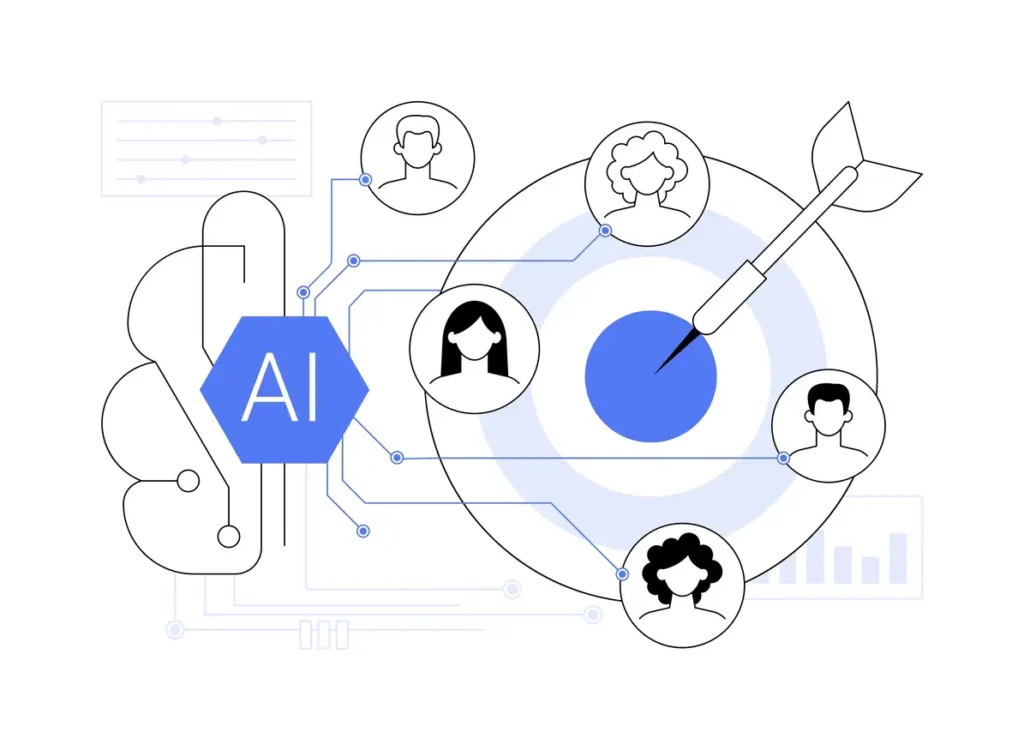How Growth Systems For B2B reduces human error in business processes
Transform Your Business: How AI Automation Is Changing B2B Workflow
AI automation is improving B2B operations in considerable means. Business are embracing this innovation to enhance operations and improve effectiveness. As jobs end up being automated, services can focus on strategic development instead of ordinary processes. The ramifications of these adjustments are profound, influencing every little thing from customer communications to provide chain management. Recognizing this transformation is essential, as the future of company depend upon the efficient combination of AI into day-to-day procedures. What lies ahead in this progressing landscape?
Understanding AI Automation in B2B Context
As businesses increasingly seek efficiency, understanding AI automation within the B2B context comes to be crucial. AI automation refers to the application of man-made knowledge modern technologies to improve and enhance service procedures. In B2B settings, this can manifest in various forms, such as automating information access, optimizing supply chain logistics, or boosting inventory management. Organizations leveraging AI automation can reduce functional prices, decrease human mistake, and boost efficiency. AI tools can analyze substantial amounts of data to give actionable understandings, enabling educated decision-making. The assimilation of AI into B2B operations not just changes standard operations however also fosters dexterity and scalability, allowing organizations to adapt to market changes swiftly and efficiently. Accepting this innovation is crucial for remaining competitive in today's electronic landscape
Enhancing Client Experience Through AI
How can AI change customer communications in the B2B market? AI improves consumer experience by offering personalized, timely, and reliable service. Virtual aides and smart chatbots can deal with questions 24/7, making certain clients receive instant reactions. AI Automation For B2B. Predictive analytics make it possible for services to prepare for client requirements, tailoring offerings accordingly. AI-driven systems can analyze customer data, enabling targeted marketing methods and boosted involvement. Additionally, view evaluation tools examine customer comments, aiding organizations tweak their services. By automating routine tasks, AI releases up personnels to concentrate on high-value interactions, promoting more powerful partnerships. The assimilation of AI not just simplifies interaction however also builds trust fund and commitment, ultimately elevating the total client experience in the competitive B2B landscape

Simplifying Supply Chain Management With AI
AI plays an important role in enhancing supply chain monitoring via predictive analytics and automated supply control. By leveraging predictive analytics, services can anticipate need variations and change their operations as necessary. Automated stock systems additionally enhance efficiency by making certain stock levels are preserved, reducing waste and boosting overall performance.
Anticipating Analytics Benefits
While several organizations deal with challenges in handling complex supply chains, anticipating analytics offers a transformative remedy by leveraging large amounts of data to forecast fads and enhance procedures. By assessing historic information alongside real-time inputs, anticipating analytics enables business to identify patterns and expect future needs. This foresight enables more educated decision-making, boosting efficiency and decreasing expenses. In enhancement, services can proactively address prospective interruptions by forecasting supply chain bottlenecks and changing approaches accordingly. The combination of predictive analytics not just improves stock monitoring but also promotes stronger partnerships with providers and clients via prompt feedbacks to market changes. Ultimately, the fostering of predictive analytics equips companies to remain affordable in a progressively vibrant business atmosphere.
Automated Supply Control
As businesses significantly rely upon anticipating analytics to optimize supply chain operations, automated stock control emerges as an effective ally in this initiative. By leveraging AI-driven modern technologies, business can boost precision in inventory monitoring, reduce stockouts, and reduce excess inventory. Automated systems evaluate real-time data, allowing companies to anticipate demand changes and adjust stock levels accordingly. This not only streamlines order fulfillment yet additionally boosts capital administration by minimizing holding expenses. In addition, AI can determine patterns in purchasing behavior, enabling even more educated decision-making pertaining to distributor connections and procurement approaches. Eventually, automated inventory control not just improves functional performance yet likewise boosts consumer complete satisfaction by guaranteeing product schedule, strengthening its role as a vital part in modern-day supply chain administration.
Data-Driven Choice Making Powered by AI
In today's competitive landscape, companies progressively depend on data-driven decision-making to boost operational performance and calculated planning. Expert system plays a crucial role in this improvement by analyzing substantial amounts of information quickly and accurately. AI formulas recognize patterns, patterns, and abnormalities that human experts may neglect, enabling organizations to make informed choices based upon real-time insights. This capacity permits companies to forecast market shifts, enhance source appropriation, and customize their offerings to consumer needs. In addition, AI-driven analytics facilitate danger analysis and management, ensuring that companies can navigate unpredictabilities effectively. By leveraging these sophisticated devices, organizations not only improve their decision-making processes however also get a competitive benefit in their particular markets, cultivating growth and advancement.
Automating Recurring Tasks to Boost Efficiency

Incorporating AI With Existing Organization Processes
When incorporating AI with existing organization procedures, many companies deal with difficulties. These obstacles usually come from an absence of recognizing relating to how AI can match present workflows. Successful assimilation calls for a complete assessment of existing operations to determine locations where AI can add value. Organizations should likewise assure that their groups are geared up with the needed abilities to utilize AI devices efficiently. In enhancement, seamless combination depends upon the compatibility of AI modern technologies with heritage systems. Business typically discover it helpful to embrace a phased approach, piloting AI applications in details divisions before a wider rollout. This method enables modifications based upon first comments, ensuring smoother shifts and optimizing the prospective benefits of AI automation in boosting efficiency and efficiency.
Future Trends in AI Automation for B2B Firms
As B2B business seek to the future, enhanced information analytics is readied to play an essential function in driving decision-making procedures. Smart procedure automation will certainly likewise become a crucial trend, streamlining procedures and improving efficiency. These innovations guarantee to improve exactly how organizations operate, inevitably causing more dexterous and responsive companies.
Enhanced Data Analytics
While businesses significantly count on data-driven choices, the role of AI in improving information analytics is ending up being a lot more important in B2B procedures. AI modern technologies help with the collection and analysis of substantial datasets, making it possible for companies to discover useful understandings that drive tactical planning. Anticipating analytics powered by AI enables companies to anticipate market patterns and client actions with greater precision. In addition, artificial intelligence formulas enhance data interpretation, recognizing patterns that human analysts may neglect. This leads to more enlightened decision-making and maximized resource allocation - Minarik AI. As B2B companies remain to accept AI-driven analytics, they can anticipate enhanced functional efficiency, boosted client experiences, and an one-upmanship out there. The future of data analytics in B2B pivots on incorporating sophisticated AI capacities
Intelligent Refine Automation
Smart Refine Automation (IPA) is positioned to transform B2B procedures by perfectly incorporating AI technologies with typical company procedures. This innovative technique combines robot process automation (RPA) with sophisticated AI abilities, making it possible for companies to enhance performance and accuracy. Firms can automate repeated tasks, such as information entrance and invoice processing, allowing staff members to focus on calculated efforts. IPA likewise leverages equipment understanding and natural language processing, enhancing decision-making via real-time information analysis. As companies significantly adopt IPA, they can expect significant expense decreases and improved client experiences. Future fads show a growing reliance on IPA for scalability and adaptability, positioning organizations to grow in an ever-evolving industry. Welcoming IPA will certainly be important for preserving competitiveness in the digital age.
Frequently Asked Questions
What Industries Benefit Many From AI Automation in B2B Operations?
Manufacturing, logistics, finance, and healthcare markets profit most from AI automation in B2B procedures. These markets leverage automation to improve effectiveness, minimize costs, streamline processes, and boost decision-making via data-driven understandings and anticipating analytics.
Exactly How Can Small Companies Apply AI Automation Effectively?
Little companies can apply AI automation efficiently by determining repeated tasks, picking proper tools, incorporating options slowly, educating team, and constantly assessing efficiency to optimize procedures, ensuring a smooth changeover and making the most of effectiveness. AI Automation For B2B.
What Are the Prices Connected With AI Automation Implementation?
The prices associated with AI automation execution typically consist of software application acquisition, infrastructure upgrades, training staff, ongoing upkeep, and possible appointment costs. These expenditures can differ substantially based upon the range and intricacy of the automation remedies selected.
How Do I Measure ROI From AI Automation Initiatives?
To determine ROI from AI automation initiatives, one ought to analyze expense financial savings, performance improvements, and earnings development versus implementation expenses. Tracking crucial efficiency indications over time offers important understandings right into performance and overall return on financial investment.
What Abilities Are Needed to Take Care Of AI Automation Projects?
Efficient administration of AI automation projects requires abilities in task monitoring, these details information evaluation, shows, and recognizing AI innovations. Furthermore, strong communication, analytical abilities, and versatility are essential for maneuvering the complexities of such efforts.
As companies significantly look for effectiveness, recognizing AI automation within the B2B context comes to be essential. The assimilation of AI into B2B operations not only changes conventional process but also cultivates agility and scalability, allowing businesses to adapt to market changes swiftly and effectively. While organizations significantly depend on data-driven decisions, the duty of AI in boosting data analytics is becoming extra essential in B2B operations. Smart Process Automation (IPA) is positioned to reinvent B2B procedures by perfectly integrating AI modern technologies with typical service processes. Reliable administration of AI automation projects needs abilities in job management, information analysis, programming, and understanding AI modern technologies.